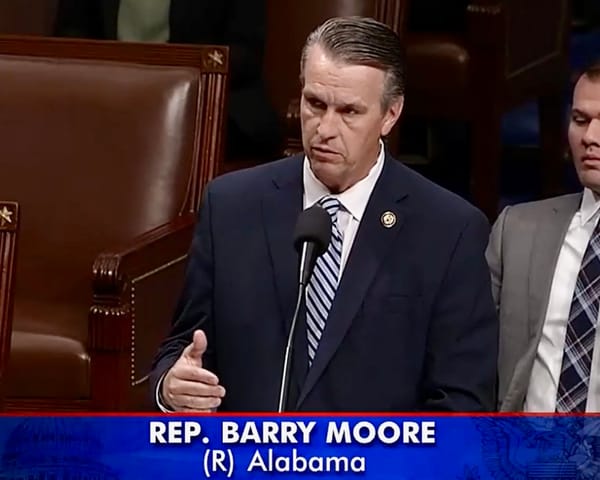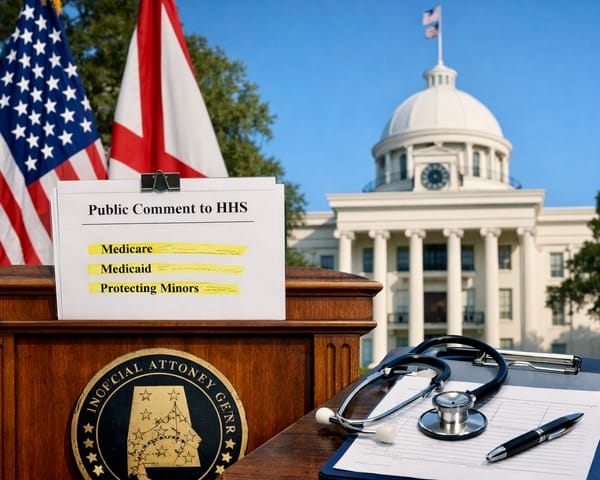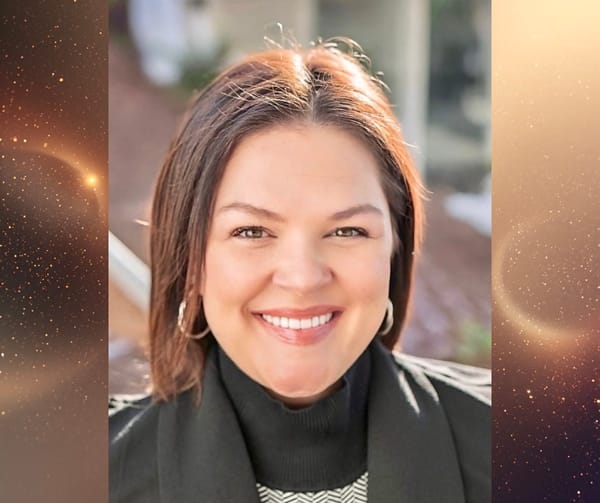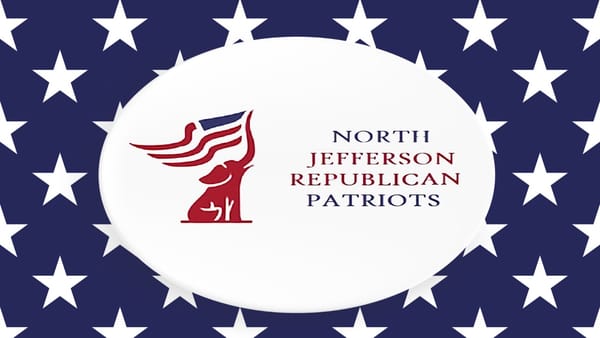37 State Attorneys General Call on FDA to Crack Down on Counterfeit and Illicit GLP‑1 Drugs
Alabama AG Steve Marshall did not join in signing letter to FDA

A coalition of 37 State Attorneys General (AGs), along with the AGs of the District of Columbia and the U.S. Virgin Islands, is urging the U.S. Food and Drug Administration (FDA) to intensify efforts against the rising tide of counterfeit and unregulated GLP‑1 drugs. The AGs are concerned about the alarming public-health risks tied to the booming demand for medications like Mounjaro, Zepbound, Ozempic, and Wegovy.
In a letter to Acting FDA Commissioner Dr. Sara Brenner (dated February 19, 2025) the AGs warn that counterfeit GLP‑1 products—sourced from countries such as China, Turkey, and India—are infiltrating U.S. pharmacies. These fake drugs may contain contaminants, unknown substances, or have dangerously inconsistent dosages, making them a serious health threat. In a number of cases, injections labeled as Ozempic were later found to be repackaged insulin—potentially triggering severe side effects and hospitalizations, the AGs say.
The letter was signed by Attorneys General from Tennessee, Colorado, Illinois, South Carolina, Alaska, Arkansas, Connecticut, Delaware, Georgia, Hawaii, Indiana, Iowa, Kentucky, Louisiana, Maine, Maryland, Massachusetts, Michigan, Minnesota, Mississippi, Nevada, New Mexico, New York, North Carolina, North Dakota, Ohio, Oklahoma, Oregon, Pennsylvania, Rhode Island, Utah, Vermont, Virginia, West Virginia, Virginia, Wisconsin, the District of Columbia and the U.S. Virgin Islands. Alabama Attorney General Steve Marshall was not a signatory to the letter.
This move follows recent FDA alerts about counterfeit drugs of this class. In April, the Agency seized counterfeit Ozempic (semaglutide) units traced back to lot PAR0362 with serials beginning "51746517." The alert, triggered by manufacturer Novo Nordisk’s report that hundreds of fake units had entered the U.S. supply chain, urged patients and providers to verify the authenticity of their drugs.
The AGs also highlight the problem of unauthorized online sales of GLP‑1 active ingredients marketed as “for research purposes only.” Despite labeling disclaimers, these products are sold directly to consumers via social media, allowing buyers to self-create injectable doses. The FDA has issued warning letters, noting such products may be contaminated or lack accurate concentration quality control—factors that have contributed to a spike in semaglutide emergencies and overdoses from adulterated or wildly elevated doses.
Compounding pharmacies are another concern across the industry. Though permitted to produce GLP‑1 medications during shortages, some pharmacies have allegedly cut corners, which has raised red flags after some incidents. A 2012 fungal meningitis outbreak, later tied to unsanitary conditions at the New England Compounding Center, resulted in over 60 deaths and nearly 700 infections. The AGs’ letter warns that similar risks could re-emerge if compounding facilities fail to uphold strict safety standards during periods of high demand and low supply. Notably, recent enforcement actions have only served to highlight concerns over impurity levels and contamination in compounded versions of Mounjaro and Zepbound.
As of February 21, 2025, the FDA officially resolved shortages of semaglutide and tirzepatide—but plans are already underway to end authorizations for compounded versions of Ozempic, Wegovy, Mounjaro, and Zepbound. Still, a federal push from drug makers like Eli Lilly has intensified, and the FDA has vowed coordinated enforcement alongside federal and state agencies to combat counterfeiters and unsafe compounding methods.
“It’s an unnecessary risk to use compounded versions of these medications. We strongly recommend against it,” said Dr. Cecilia Low Wang, who advises the FDA on endocrine matters.
The AGs urged the FDA to:
- Coordinate with Homeland Security to intercept counterfeit GLP‑1s before they reach consumers.
- Expand enforcement against online sellers and compounding pharmacies distributing active ingredients or unapproved mixes.
- Partner with state pharmacy boards to ensure sterile production at compounding facilities.
- Use investigations, inspections, and enforcement powers under the Federal Food, Drug, and Cosmetic Act.
With GLP‑1 drugs remaining costly—some patients face monthly costs of $1,200–$1,400—there’s strong incentive for unauthorized markets. But, authorities argue that consumer safety must not be sacrificed for lower prices.
ALPolitics.com has reached out to the office of Alabama AG Steve Marshall for more information on his decision not to add Alabama to the States urging the FDA to act to protect consumers. At press time, we have not received a reply, but will update this story as needed.
The letter may be read HERE.




